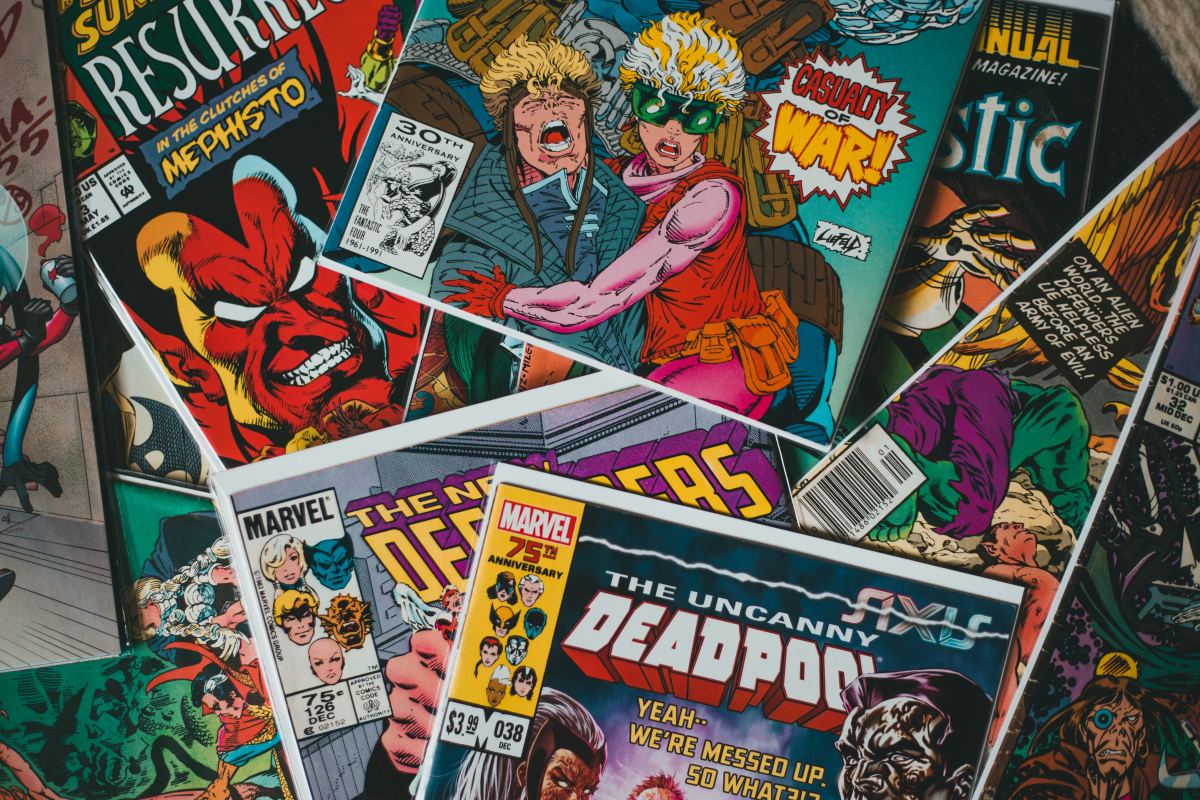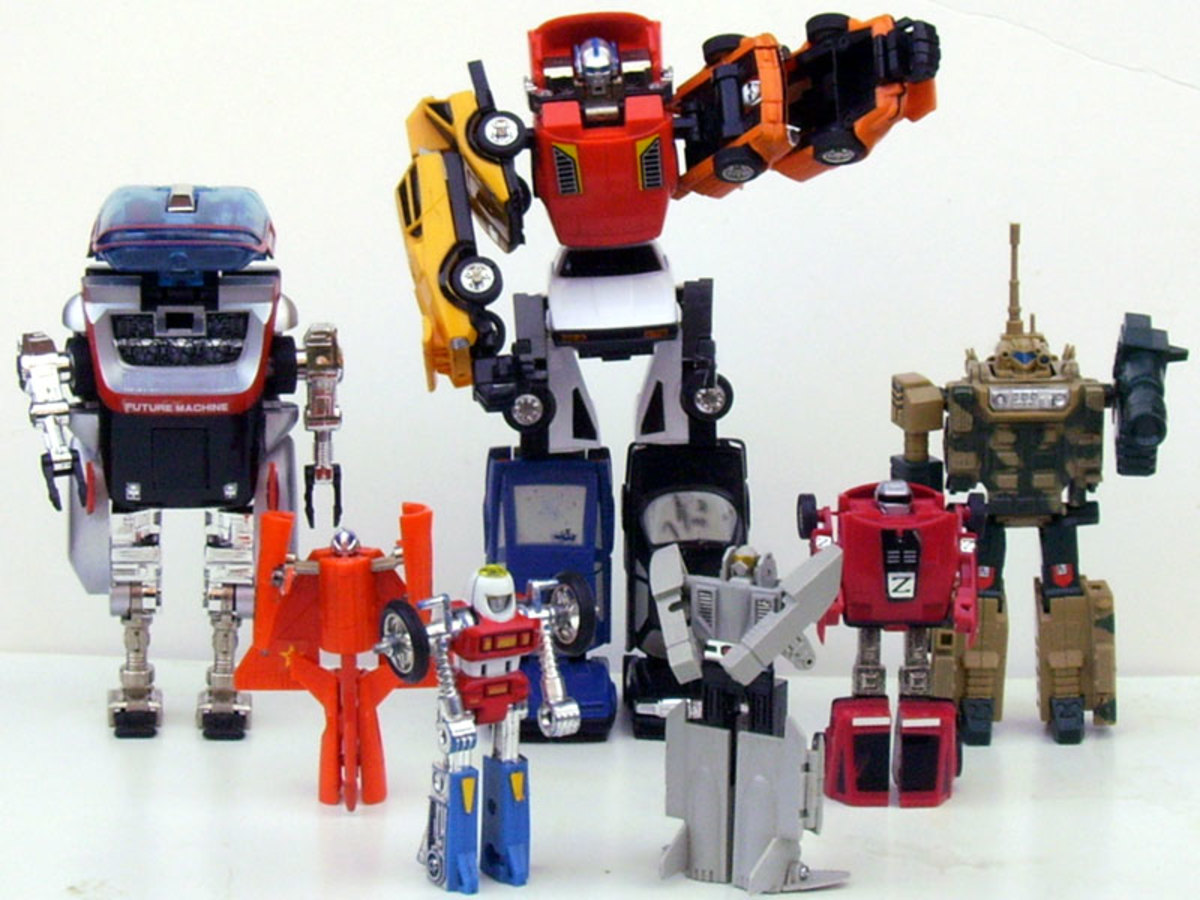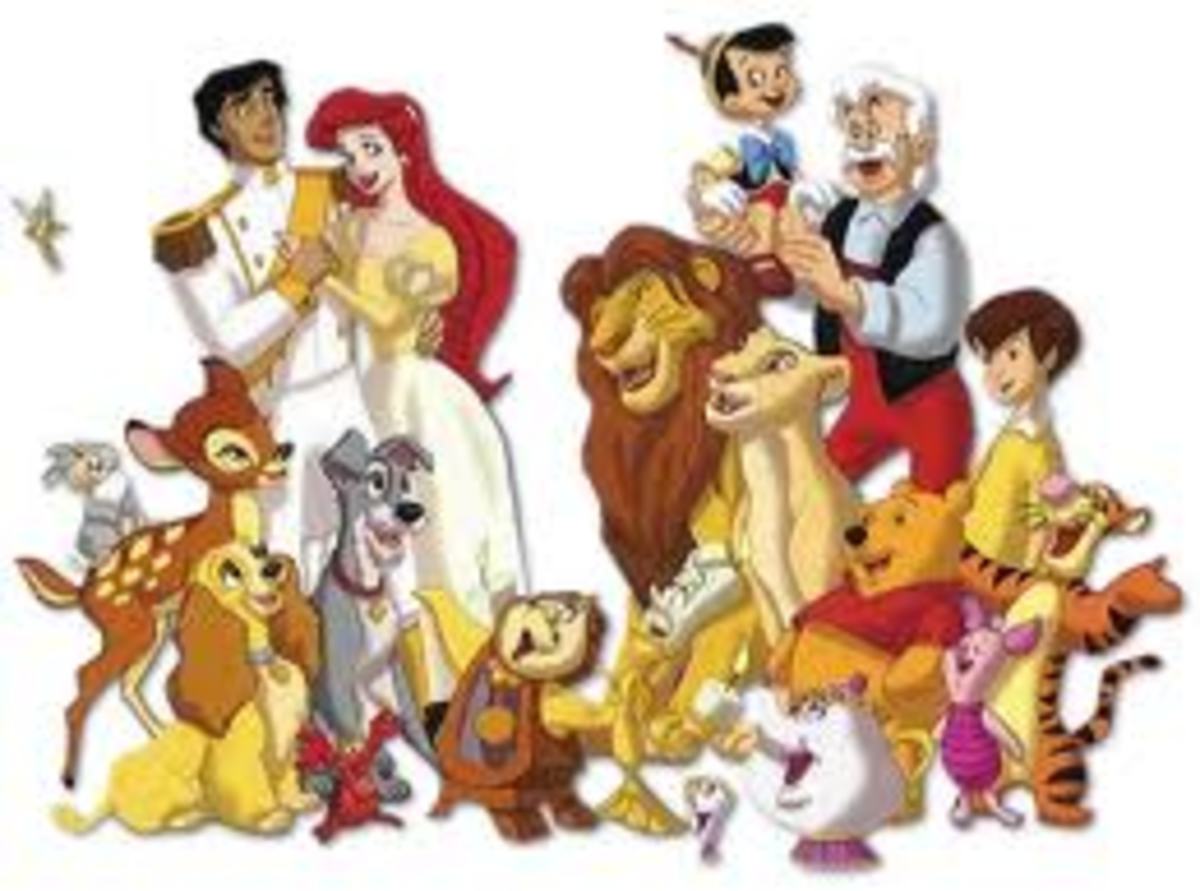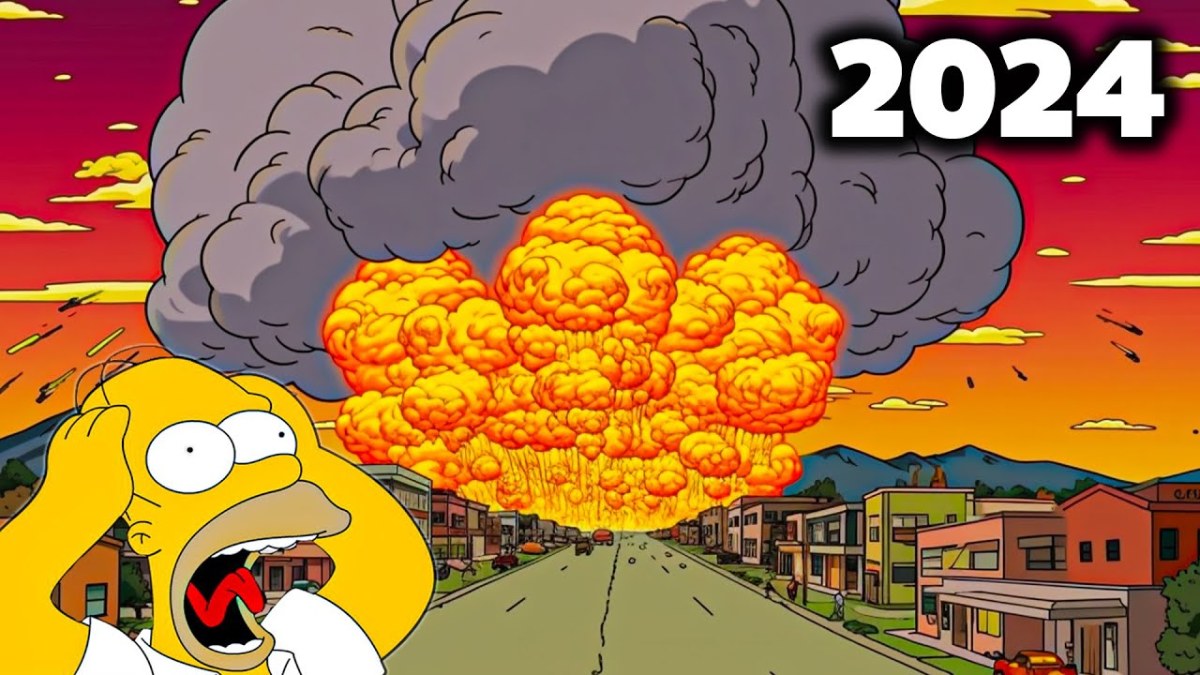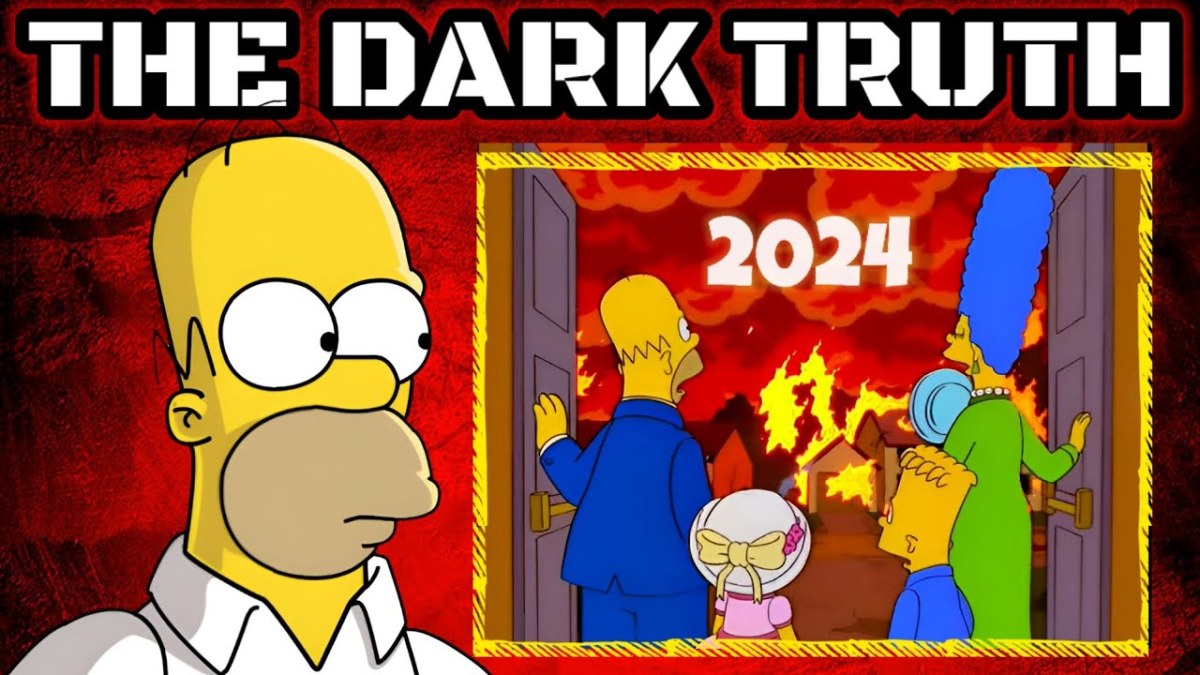Memorial For The Saturday Morning Cartoon ( 1959 - 2014 )
I feel like mourning the death of the Saturday Morning Cartoon, but I am not sure exactly what I am supposed to be mourning. You can still find cartoons on Saturday. Disney, Disney XD, Disney Jr., Nickelodeon, Nick Jr., Nicktoons, Cartoon Network, Boomerang, Sprout and Hub all still air cartoons during the traditional Saturday morning time slot. Telemundo still has a block of children's programming, and NBC has NBC Kids between 10:30am and 1pm, a block of childrens E/I shows that include the same puppets, goofy live action and cartoons that were part of the traditional Saturday Morning blocks. For whatever reason, no one is counting NBC Kids as part of the tradition of Saturday Morning Cartoons. Perhaps because they are aimed at pre-schoolers, and perhaps because there was a 14 year gap when NBC aired no cartoons on Saturdays, NBC Kids is not counted. Meanwhile, if you have iN Demand, you can watch all manner of cartoons during the traditional Saturday time slot, including shows like South Park which are not really kid friendly. So if cartoons are not gone from television on Saturday, what exactly am I mourning?
You can argue that we are witnessing the death of cartoons on the broadcast networks. I am not exactly sure that means anything today. There has been a generation and a half that has known nothing but cable, not realizing any difference between cable networks and broadcast networks. But even trying to mourn the disappearance of Saturday Morning cartoons from the broadcast networks seems a bit hollow. The Saturday morning I remember was on the big three networks, ABC, NBC and CBS. I gave up watching those cartoons around 1980. If the media had not made a big deal of CW cancelling Vortexx, I probably never would have known the Cartoons were finally gone.
Besides, the Saturday cartoons that showed up on FOX and WB in the 90s were a whole different animal than what I grew up with as a kid. The big three networks paid so little for their cartoons, that the budgets were atrocious. Animation was poor and constantly off model. The music was in looped cues. And the writing? It was if they wrote one plot for each series and kept recycling it for every episode. The networks always ordered a low number of episodes. About 16 for the first season, and 8 for the second season. They rarely ordered a third season, but kept rerunning the same cartoons year after year. They did not think children would notice the poor animation, nor how often the same cartoons repeated. And you know what, we didn't.
Saturday morning was more than just low budget cartoons. There were the live action shows, mostly involving giant puppets, or goofy over sized costumes. The FCC wanted educational content, so CBS ran something called In The News once an hour, a one minute recap of world news events aimed at children. ABC ran the Schoolhouse Rock and Time For Timer cartoons, while NBC went with having a brief educational segment at the end of each of their cartoons. The only decent cartoons, and we did not realize this at the time, were The Bugs Bunny/Road Runner Hour and The Pink Panther Show. Both repackaged cartoons shorts originally made for theaters.
Yes, I stopped watching Saturday Morning Cartoons in the early 80s. Instead I began sleeping in, waking up in time to watch American Bandstand and then waiting two hours for the Afternoon Kung Fu films to start. That new tradition came to an end in 1987. ABC cancelled American Bandstand to expand it's broadcast of ABC Sports, and the station that ran the Kung Fu movies was bought by Rupert Murdoch who wanted the violent films removed from the afternoon time slot. Murdoch had bought the station, along with all the other Metromedia owned stations, to create a new network called FOX. Word was he wanted to use Saturday Afternoons for family oriented programming, mostly movies from the 20th Century Fox library, and could only do than if the time slot was no longer associated with the martial arts and biker films that aired weekly on Drive-In Movie. The new FOX network was also expanding into the prime time, and that year Married With Children debuted, with 21 Jump Street and The Simpsons soon to follow. In 1990 FOX officially debuted their Saturday Morning Cartoon lineup. Murdoch wanted to prove that his network was every bit as good as the three big networks, and to do made sure the FOX cartoons had better budgets. Their original cartoon lineup included the Batman animated series and Animaniacs which included Pinky & the Brain. Those cartoons would move to the new WB ( Warner Brothers ) network in 1995 when they decided to have their own Saturday morning cartoon block. Paramount launched their UPN network that same year, but after airing their own cartoons for a half season in 1995, ceded the Saturday Morning time slot to the other networks, instead airing Disney Channel cartoons on Sunday and weekdays.
The cartoons of FOX and WB were nothing like what the other three networks had. They had excellent animation, excellent writing, were funny when they were meant to be funny, thrilling when they were meant to be thrilling, and were good enough that adults started watching them. Here I was in my late 20s and was drawn back to watching cartoons on Saturday morning. Or at least had them on my VCR timer. The Batman, Pinky and the Brain, Earthworm Jim, The Tick, Jacky Chan's Adventures, The X-Men and a few others. As a grown man I probably should be embarrassed to admit I had slipped back to watching cartoons on Saturday mornings, but I was not the only adult doing this. Just about all my adult friends did the same. And these were cartoons that could not be fully appreciated except by adults. Aside from the occasiona double entendre gags which refrenced adult subjects, and parodies of R rated films that children would have never seen, there were pleanty of references to movies and programs from the 60s and 70s that kids in the 90s would have never understood.
These were cartoons made by a new wave of animators who were more interested in making cartoons that they themselves found entertaining, than something they thought would entertain small children. The end result was similar to Shrek and those other Dreamwork cartoons, family films with in-jokes only adults would appreciate. FOX and WB were clearly aiming for an older audience. There was another big difference between the FOX and WB cartoons. Most of them aired on weekday afternoons as well. If you wanted to skip Saturdays then you could watch the same cartoons all week long after school. Like I said, what was on FOX and WB were a different animal. So when we talk about the Saturday Morning Cartoon coming to an end with CWs cancellation of Vortex, does that really count as an end to an era? Or did the traditional Saturday Morning Cartoon die off years earlier?
Saturday, September 14, 1991, 8am. NBC began their new season of Saturday Morning cartoons with a new live action show, Chip & Pepper's Cartoon Madness. It was hosted by Chip and Pepper Foster, celebrity twins from Canada that NBC thought would also be big in the United States as well. Their show featured brief comedy skits and vintage cartoon shorts from past Saturday blocks. The twins would also appear in bumpers during every commercial break of the cartoon shows to follow. At 8:30am was the premiere of Yo, Yogi! a brand new Yogi Bear cartoon which featured 3D segments. 9am was the only hold over series, Captain N and the New Super Mario World which featured characters from the popular Nintendo video games. 9:30am was the premiere of ProStars, a cartoon featuring the likenesses and voices of Michael Jordan, Wayne Gretsky and Bo Jackson who together travel the world to fight crime. 10am was the premiere of Wish Kid featuring the voice of Macaulay Culkin who had recently achieved superstardom that past winter with Home Alone. Macaulay's character was a kid who owned a magic baseball mitt that granted wishes. 10:30 was the premiere of Space Cats, featuring talking cats from outer space who live in a dump and act as Earth's defenders. At 11am was a one hour block of Saved by the Bell, a live action sitcom about high school kids that originally aired on NBC's prime time, but then moved to Saturday mornings where it became a hit. A couple of years earlier NBC had decided that 11am would begin their programing for teenagers block. In 1991 this included two episodes of Saved by the Bell, and the music video show Saturday Morning Videos airing at noon.
That seemed a pretty strong lineup for NBC, not that the other networks didn't have their own strong lineups. CBS offered the live action Riders in the Sky, a sort of replacement series for Pee-wee's Playhouse which featured the Country/Western band of the same name. This was followed by the cartoons Mother Goose & Grimm, Garfield, Ninja Turtles, Back to the Future, Where's Waldo, Muppet Babies and Storybreak. ABC offered Winnie the Pooh, Land of the Lost ( a live action remake of the 70s series ), Darkwing Duck, Beetlejuice, Hammerman, Pirates of Dark Water, and the networks longest running cartoon show ( under various names ) Bugs Bunny & Tweety. The new challenger FOX offered the cartoons Attack of the Killer Tomatoes, Bobby's World, Tom & Jerry Kids, Tazmania, Little Shop, Bill & Teds Adventures and Captain Planet. Nowhere was there any hint that Saturday Morning Cartoons were in trouble.
But by the end of the season, NBC decided not to order any more cartoons. They wanted to air a Saturday edition of The Today Show instead. Cartoons were still profitable in 1992, even with the new competition of FOX. But with some deregulation from the FCC on how many hours networks had to devote to children's programming, NBC decided that they could make more money airing programming aimed at adults. They still kept their teen block of programming, which was re-dubbed Teen NBC and would feature more episodes of Saved by the Bell and it's clones Running the Halls and California Dreams.
In 1995 WB debuted their Saturday Morning Cartoon block. A year later CBS decided to begin airing their Morning Show on Saturdays. A few cartoons from Nickelodeon still aired in the afternoon, but CBS was pretty much gone as well. The lone survivor of the big three networks was ABC who would continue to air cartoons until 2011. But the reasoning for this was selfish. Disney was the new owner of ABC, and used the network to air their cartoon and live action kids shows. ABC even outlasted FOX. By 2008 with only ABC still airing cartoons, FOX lost interest in their own cartoon block. Besides, they were getting pressure from their affiliates to drop the cartoons so they could air their own live news & entertainment shows. Many of the cartoons airing on FOX moved to the CW network. The CW was the merger of the UPN and WB networks in 2006. CW retained all of WBs cartoons, but was eager to air the more popular FOX cartoons. In the summer of 2014, CW announced that they were going to discontinue airing cartoons as of September 27.
The news that the 60 year tradition of Saturday morning cartoons was ending with the CW cancelling it's Vortexx cartoon block was, at first, heartbreaking. Just about every adult reacted to the news in shocked disbelief. It was as if a great part of American culture had died. But there was a group who was not phased by the news. Children. The children of today live in a world where time slots are meaningless. With DVRs, iN Demand and streaming video, cartoons are something you can watch at any time. No longer segregated to Saturday morning, if a child wants to sleep late, play a video game or go outside and play with his friends, he or she can do so without missing their favorite cartoon. It will air wherever and whenever they want. Even for those who watched their cartoons during the traditional Saturday time slot, technology now allows them to continue watching those cartoons at the same time even without a broadcast network to rely on. And today's kids never had it so good. When I was a kid, there were no DVRs or any other recording device. There was no Hulu or iN Demand. There were three channels, and you had to decide which channel to watch. Hard enough if you were one kid who could not decide which of the three cartoons you wanted to see the most. Harder if you had a sibling who wanted to watch a different channel. And the hardest if there were more than one sibling, each who wanted to watch a different channel, resulting in a three way fight. None of that today. Technology has removed that particular obstacle.
The same week CW ended it's run of Saturday morning cartoons, FOX ended it's Sunday night Animation Domination without any media attention. Animation Domination began in 2005 when FOX added it's fourth animated series, American Dad, to it's Sunday night lineup. For nearly ten years FOX kept their Sunday nights animated with The Family Guy spin-off The Cleveland Show, Bob's Burgers, and the short lived animated shows Allen Gregory and Napoleon Dynamite. In the spring of 2014 FOX cancelled American Dad, and instead of making plans to replace it with another animated series, decided to move the live action comedy Brooklyn Nine-Nine to Sunday, as well as debuting another live action sitcom, Mulaney. While this brings an end to the Animation Domination block, it is not an end to their cartoons. The Simpsons began it's historic 26th season, and at 26 years is Americas longest running prime time show. Family Guy is also going strong. It's season premiere had the characters traveling to Springfield to meet the Simpsons in a one hour special episode. Meanwhile American Dad was picked up by TBS for two more seasons. Elsewhere, Comedy Central's South Park has begun it's 18th season, while the 10th season of SpongeBob Square Pants is set to debut later this year. Far from dead, the American cartoon series is still going strong.
Here is something else to consider. Nearly ten years ago we saw the demise of the weekday cartoon, and it never got this much attention. You probably remember those cartoons that typically aired on your local stations from 7am to 9am in the mornings, and 3pm to 5pm in the afternoons. Believe it or not, those cartoons were better quality than the network cartoons that aired on Saturdays. Most of them were vintage made for theater cartoon shorts. Merrie Melodies and Looney Tunes, Tom & Jerry, Woody Woodpecker, the Max Fleischer Popeyes, Casper the Friendly Ghost, Droopy Dog and all of the other Tex Avery shorts. They even threw in the live action Little Rascals. The only real advantage Saturday had to offer was the thrill of seeing brand new cartoons. But by Christmas they had run through all the new cartoons, and it was repeats until the next September. Even the first run syndicated cartoons shown in the afternoons were better than what Saturday Morning had to offer. A single episode of Inspector Gadget was far more entertaining than an entire season of Space Ghost.
Channels that carried ABC, CBS and NBC did not air cartoons on weekdays. They were the stations that aired game shows and soap operas in the afternoon. PBS aired Sesame Street and other educational kids shows. That left two or three independent stations in each market to air the weekday cartoons. But by the mid 90s, those local stations had become FOX, WB and UPN. And those new networks wanted to air their own cartoons in the afternoons. This pushed the syndicated cartoons onto cable television where they remain to this day. But with shows like Jerry Springer and Judge Judy began to spring up, the deregulation of infomercials allowed stations to air as many as they wanted, and the demand to air news programs in the late afternoon increased, the stations that carried the networks began to drop the cartoon blocks. The final straw was a mandate by the FCC that all broadcast stations air 3 hours of E/I ( short for Educational / Informative ) programming, and channels everywhere wanted to use the time slots of the remaining cartoon blocks to satisfy this mandate. Inevitably FOX, UPN and WB discontinued their daily cartoon blocks to appease their affiliates. There was not much complaint as the same cartoons already aired on Saturdays. And yet somehow this passing was ignored by the media. We did not mourn the ending of the weekday cartoon.
So what was different about the Saturday cartoons that made us all sad to hear CWs decision to cancel them? Perhaps the answer lies within the countless articles written on the subject. There is almost no mention of the cartoons shown on Vortexx. Instead these articles talk in length about Scooby Doo, the live action H.R. Puff-n-Stuff, Superfriends, Fat Albert, Johnny Quest, and a host of other cartoons that were cancelled by 1980. Fewer cartoons from the 80s are mentioned. The 90s and the recent decades are almost never mentioned. And yet it is the cartoons from the recent decades, including Yu-Gi-Oh, Digimon, Dragon Ball Z, Sonic X and The Spectacular Spider-Man, which are being cancelled from broadcast television. We are not really mourning the loss of Vortexx. We are mourning the loss of our childhood. That is why those articles are so full of 70s and 80s cartoons. Because those are the ones the authors of the articles watched when they were still children.
And when they grew up, the cartoons were still on the air. It was as if a piece of their childhood still existed. Everything else may have been gone. They may all have been older and perhaps greyer. But the cartoons they left behind the year they decided they were too old to watch them, they still existed. When NBC stopped airing cartoons, there was still CBS and ABC. And when CBS, ABC and even FOX discontinued airing cartoons, there was still the CW. WE could always say the cartoons still aired on Saturday mornings, even though we were deluding ourselves that they were the same cartoons. With the CW cancelling Vortexx, we can no longer say the cartoons are there. Our childhood is truly over. This was just a final reminder.
We never did mourn the loss of our childhood. Maybe we regretted the year we had to give up Trick-or-Treating, but we celebrated every milestone that made us adult. The day we were old enough to drive. The day were were old enough to vote. The day we could go to an R movie without our parents. Even the day we were old enough to drink beer and smoke cigarettes, although most of us would pass that milestone long before the law allowed. We could not wait to be adults. Childhood was just something immature you needed to grow out of as fast as possible. Little did we realize what a sh*tball adulthood could be, and how much we would miss those carefree days when our only worries were homework, tests and the occasional book report. Being told that something unique to our childhoods was now gone forever reminded us of what we lost. Not what we lost this past September, but what we lost 20-40 years ago.
Does it matter that Hanna-Barberra, Filmation, DFE and Sid & Marty Croft stopped making cartoons and children's shows decades ago? Does it matter that when we watch their old cartoons on cable or streaming video, we can't believe we actually found that crap entertaining? Does it matter that Vortexx was mostly cartoons made in Japan to sell card games, or that those same Vortexx cartoons will continue to air new episodes online and on cable? Does it matter that NBC started showing E/I cartoons on Saturdays a few years ago, and is still airing their NBC Kids block in he early afternoons? Or that by simply turning to cable you can still find cartoons on Saturday between the golden hours of 8am and 12 noon? Does it even matter that children today would rather be on the computer than watching cartoons, and probably can not understand what all the fuss of the CW cancelling Vortexx is all about? No. None of this matters. We refuse to accept E/I cartoons as cartoons, even though we are willing to accept Schoolhouse Rock as cartoons. We will not accept a later time slot. We will not accept programming for teens. We will not accept cable. We are willing to accept the CW, a network that did not exist before 2006, but not any of the cable networks. The cancellation of Vortexx is, as far as we are concerned, the end of an era.
But for those kids with a DVR loaded with their favorite cartoon shows, and prefer watching them on the weekend, the Saturday Morning Cartoon has never ended. It has only become more convenient to watch.









![The Pink Panther Classic Cartoon Collection [DVD]](https://m.media-amazon.com/images/I/5171P7HB3ML._SL160_.jpg)

